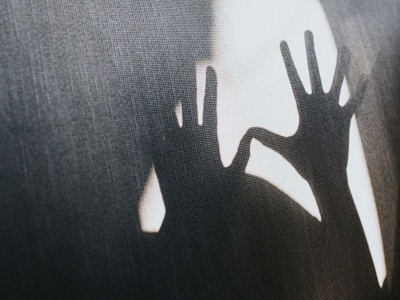
Child sexual exploitation survivors need action now, not more reports
Alison Millar, head of the abuse team, discusses the various reports on the handling of child sexual exploitation by the police, and the need to ensure a better criminal justice response, rather than more reports that go over old ground and provide little in the way of accountability.
Posted on 23 June 2022
Yesterday saw the conclusion of the Independent Office for Police Conduct (IOPC) investigation into South Yorkshire Police’s response to non-recent child sexual exploitation in the Rotherham area, with the publication of its overarching report from Operation Linden.
This report follows on from the 2014 Independent Inquiry into Child Sexual Exploitation in Rotherham (1997 – 2013) authored by Professor Alexis Jay OBE, the Chair of the Independent Inquiry into Child Sexual Abuse (IICSA).
It also follows on from the Report of Inspection of Rotherham Metropolitan Borough Council 2015 (the Louise Casey report).
The outcome of this IOPC investigation has been eight years in the making and the inquiry was estimated to have cost £6 million. It found that eight officers had a case to answer for misconduct and six officers had a case to answer for gross misconduct. In addition, Op Linden identified 14 officers who demonstrated unsatisfactory performance, or who received management words of advice. The IOPC also decides what should happen to those involved; in this case the most serious outcome that has been administered is a final written warning.
This is absolutely shocking. There has been public outcry from survivors and understandably so. As brave survivor, Sammy Woodhouse, has said: “there’s been no accountability whatsoever.”
Whilst the Operation Linden report has not upheld complaints of the police criminality that were reported, the IOPC has found that time and again police officers were not fully aware of, or able to deal with child sexual abuse and exploitation offences. Officers repeatedly lacked empathy, failed to recognise children and young people as victims and were willing to accept what they were told by suspects at face value. In other words, a total dereliction of their public duty towards some of the most vulnerable children in our society.
But this is not new. We knew all of this already. Sammy Woodhouse and other survivors and campaigners have been saying these things for years – how the police stigmatised the victims, labelling them as “promiscuous” and blaming them for “placing themselves at risk”, failed to act on what they were saying and also dismissed parents’ concerns. Many vulnerable children, especially those in care, were seen as problems, not victims, and viewed to have brought their exploitation upon themselves.
We did not need another long and expensive report to tell us this. It is beyond disappointing for the survivors that this report fails to identify individual accountability and adds little to what is already known of the corporate failures.
Very many pages have already been written about the Rotherham abuse scandal, and similar scandals in towns such as Rochdale, which led to a BBC dramatisation ‘Three Girls’ based on the true stories of victims of grooming and sexual abuse.
We know about the dreadful sexual abuse and exploitation – children being coerced, manipulated or deceived into sexual activity – that took place “on an industrial scale”; Prof Jay’s report found at least 1,400 children were subjected to sexual abuse and she detailed how girls as young as 11 years old were raped, trafficked, abducted, beaten, and intimidated by large numbers of male perpetrators.
The details of the abuse were absolutely horrific: there were examples of children who had been doused with petrol and threatened with being set alight, threatened with guns, made to witness brutally violent rapes and threatened they would be next if they told anyone.
The Rotherham Investigation report in 2014 found that there were very many cases where the operational response of South Yorkshire Police fell far short of what could be expected. At an operational level, the Police gave no priority to child sexual exploitation (CSE), regarding many child victims with contempt and failing to act on their abuse as a crime. The Police effectively suppressed a report in 2002 because some senior officers disbelieved the data it contained. Two other reports, which set out the links between child sexual exploitation and drugs, guns and criminality in the Metropolitan Borough of Rotherham were ignored and no action was taken to deal with the issues that were identified in them.
Allegations were subsequently reported that local officials, including a police officer, “had sex” with victims involved in the Rotherham scandal. The South Yorkshire Police constable at the centre of the allegations was also alleged to have passed on information to the grooming gangs and a second police officer was accused of neglect of duty for failing to report his colleague.
Meanwhile the prosecutions of the perpetrators have been working their way through the system. In November 2010, five men were convicted of sexual offences against girls aged between 12 and 16 in Rotherham and jailed for between 4 and 11 years. In 2014, South Yorkshire Police invited the National Crime Agency (NCA) to carry out an independent investigation into child sexual exploitation in Rotherham. This became Operation Stovewood, the single largest law enforcement investigation into non-familial child sexual exploitation and abuse in the UK. It spans the same time period as the Jay investigation in 2014 and apparently has around 200 officers working on the investigation. To date, 20 individuals have been convicted as a result of this operation and received prison sentences ranging from 2 years to more than 20 years. The scale of Operation Stovewood recognises that these convictions are really only the tip of the iceberg – and the huge scale of the criminality, which South Yorkshire Police originally missed. It is still ongoing. In January 2022, it launched a new appeal for potential victims to come forward. To the survivors of the Rotherham scandal, it must seem never-ending.
The last – but absolutely not least – point to make is that this is not a problem that was confined to the time period of review in Rotherham but a real and ongoing national issue. Earlier this week, we saw the publication of a review commissioned by Oldham Council in 2019 into child sexual exploitation in the Borough of Oldham. This again found that vulnerable children were left exposed to sexual exploitation in Oldham because of serious failings by the Council and Greater Manchester Police; these included failures to investigate an allegation of serious sexual abuse made against a Rochdale grooming ringleader who at the time of the complaint was working for Oldham Council as a welfare rights officer, thus leaving other children at risk.
In February 2022, the Independent Inquiry into Child Sexual Abuse published its report into Child sexual exploitation by organised networks. This states clearly that, “Any denial of the true scale of CSE must be challenged at national level as well as locally.” It is not a problem confined to Northern towns. We have seen this here at Leigh Day with cases that involve organised abuse of children by networks (two or more individuals who are known to or associated with one another) in areas as geographically disparate as Islington and Coventry. It is not a rare problem.
A shocking finding of the IICSA report is that, if anything, we have gone backwards in our understanding and profiling of this issue. IICSA’s findings indicated that less is now known and understood about it than prior to 2015. IICSA quoted in its report evidence that criminal justice responses were “perhaps the most frequently identified source of dissatisfaction with institutional responses to CSE, both by children and young people themselves and those who care for / work with them” (Dr Helen Beckett, University of Bedfordshire). Reading the IOPC and earlier Rotherham reports, this is absolutely no surprise. It is vital that police forces take effective measures to disrupt - including by the use of effective ‘problem profiling’ (which can only be done by working closely and collaboratively with other agencies and community groups) - investigate and prosecute these vile offences. Most importantly, they must properly ensure that the voices of the children involved can be heard, listened to in a non-judgemental way and taken seriously.
Survivors need action now, not more reports.




